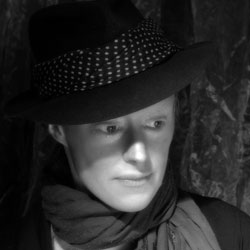In the emollient night of roses and paraffin,
of burning hands and of all that burns
of broken sleep piecing together what for
so long had remained lost of what was lost
not in the dark but in the fire of the dark
in the night and in the oil of the night
of everything you were led to believe in,
everything stays secret until – one morning –
you put your hands through the touch
of the unfinished light and took it back.
Notes on the Poem
An aubade is a song or poem greeting the dawn, a morning love song, a song or poem of lovers parting at dawn or the morning musical equivalent of a nocturne, according to dictionary definitions. Traditional and contemporary examples abound. How does Rachael Boast simultaneously celebrate and subvert the form? In a spare but compelling few lines, Boast makes it clear that much has gone on during the night. However, references to "burning hands" and "broken sleep" and, unsettingly "what for so long had remained lost of what was lost" shade whatever has gone on from intensity and passion to anguish and pain. Even "the emollient night of roses and paraffin" is troubling - while "emollient" suggests something soothing, and "roses" suggests something equally pleasant, "paraffin" could as easily be starting and fueling the fire as ameliorating it. In the morning, then, is Boast's aubade perhaps marking a parting from a sadistic lover, a triumph over physical or spiritual pain? What indeed has been taken back as dawn ("the unfinished light") arrives?
